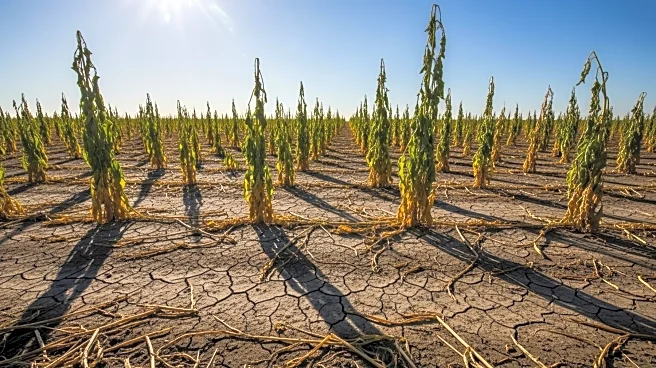What's Happening?
The UK has experienced one of its driest springs on record, leading to significant reductions in crop yields, according to the National Farmers' Union. The East Midlands, among other regions, remains officially in a drought. Patrick Lynn, a farmer in Southwell, reported that his spring barley yield was about half of the normal amount due to the lack of rain. Despite some crops planted in the previous autumn faring slightly better, they still grew significantly less than expected. The poor yields coincide with a global oversupply of grain, resulting in low prices and financial struggles for farmers.
Why It's Important?
The drought-induced crop yield reductions have serious implications for the agricultural sector in the UK, particularly in the East Midlands. Farmers are facing financial pressures due to both reduced yields and low market prices for grain. This situation highlights the vulnerability of agriculture to climate variability and the need for adaptive strategies to manage water resources and crop production. The economic impact extends beyond individual farmers, potentially affecting food supply chains and market stability. The drought also raises concerns about long-term sustainability and resilience in the face of changing climate patterns.
What's Next?
Farmers and agricultural organizations may need to explore alternative farming practices and technologies to mitigate the impact of drought conditions. The government and industry stakeholders might consider policy measures to support affected farmers and ensure food security. Continued monitoring of weather patterns and crop conditions will be essential in planning for future agricultural seasons.









